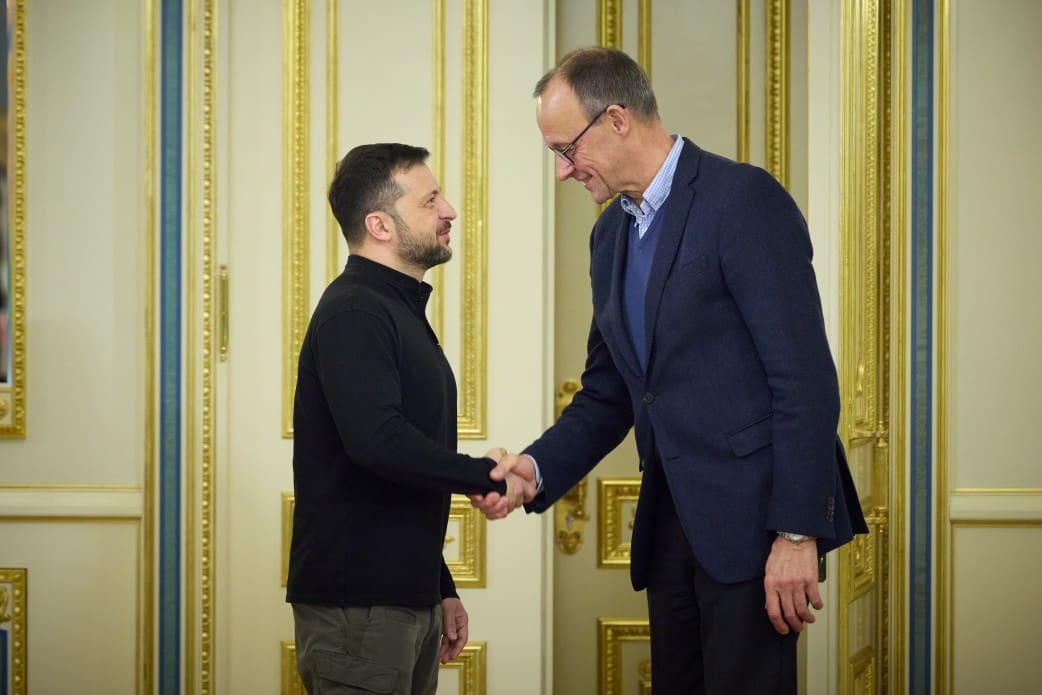Germany ranks first in Europe and second after the United States in the world in terms of military and financial assistance to Ukraine, so the name of the new German Chancellor is one of the most important strategic issues for our country, on which our future history in the twenty-first century depends.
German opinion polls report a clear advantage for the CDU/CSU bloc, which is currently supported by up to 33% of voters. A poll conducted in early September showed that the three ruling parties – the Social Democrats, the Greens and the Liberals from the Free Democratic Party – would collectively gain 30%. De facto, the German Christian Democrats outnumber the combined result of all three parties, until recently the ruling coalition.
And the leader of the German conservatives, Friedrich Merz, is considered almost a chancellor in Germany. The 69-year-old Merz is one of the most experienced figures in the CDU/CSU, having made his career during the Cold War and the Berlin Wall. And this really means a lot for understanding what Erefia is and how it should be treated. The leader of the German conservatives also served in the military until 1976. And this is an extremely important feature for the German Chancellor against the backdrop of recent German intelligence reports about the possibility of a military conflict between Europe and Russia in the coming years.
So far, Merz has demonstrated a political stance of support for Ukraine, called for pressure on Erephia, and appealed for a just peace. However, some of his statements were close to the traditional policy of compromise for European centrists. In particular, Merz recently stated that the West has no goal of defeating Russia in the conflict with Ukraine, but Ukraine must restore sovereignty over its territory and ensure its security. It is doubtful, however, that such a policy of being humane to the enemy and compromising with the Russian threat will be successful and guarantee peace in Europe.
At the same time, Merz actively criticized the Scholz government for its indecision in helping Ukraine and called for the provision of Taurus missiles to the Ukrainian armed forces, Merz aptly said that without Taurus missiles, Ukraine is fighting with one hand tied. And after winning the election and taking office as chancellor, Merz promises to announce a 24-hour deadline for the Kremlin to end the war against Ukraine. If Moscow ignores this demand, Merz will support the supply of long-range Taurus missiles to Ukraine, which will allow for deeper strikes on Russian territory.
In security policy, Merz supports increasing spending on the army and instead of 2% of GDP on military spending, he proposes 3%. This is a really mature and wise step against the background of the rest of the left-wing German politics and the threats from Moscow. In addition, Merz emphasizes the importance for Europe to be prepared to defend itself against the Russian threat in the face of Donald Trump’s isolationist policies.
Compared to the current Chancellor Olaf Scholz, who has been cautiously timid in his policy of supporting Ukraine – hesitating for a long time about whether to provide lethal weapons, whether to escalate the supply of tanks to the victim country, etc. – Merz’s statements look promising.
However, we should be careful with our expectations, because even despite the polls, Merz is not yet the chancellor of Germany. By the time of the early elections on February 23, other parties may have grown in popularity. The threat of political scandals or even Moscow’s destructive influence on German elections remains serious. The example of the elections in Romania, where a previously unknown candidate came out on top thanks to a staged campaign on Chinese Tik Tok, shows that unpredictable electoral scenarios can occur.
In addition, it should be understood that Merz is only a candidate for chancellor and will not be able to fulfill all his promises as leader of Germany. In the end, the CDU/CSU will probably have to enter into a coalition with other parties and coordinate its position on Ukraine with partners who may have a parliamentary “golden share.”
The fact remains that Friedrich Merz is a much stronger supporter of Ukraine than the ruling Social Democrats, and Germany’s position on Russian aggression could be much stronger.
Author: Valeriy Maydanyuk




